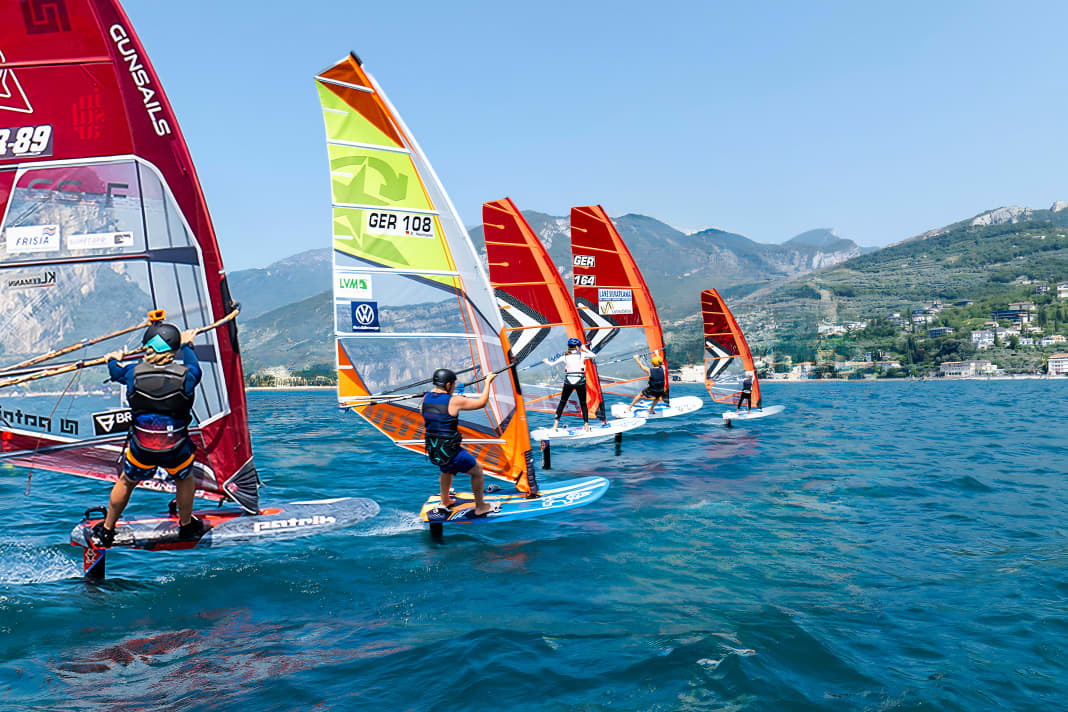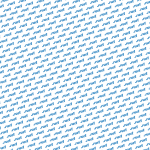Interview with Dennis Müller: From regatta racer to promoter of young talent
Julian Wiemar
· 06.04.2024






The man from Wesel, who now lives on Norderney, has been racing for twenty years. He has regularly placed in the top three of the German Windsurf Cup and among the top twenty in the PWA World Cup. Regattas and professionalism therefore play a major role for the trained banker. But windsurfing means much more to him. His passion for windsurfing and the lifestyle surrounding it is so great that he quit his permanent job at the bank on Norderney in 2018 and went on "a journey with the wind".
He has not returned to the bank to this day. However, it is currently not so much the regattas or the desire to travel that motivates him to continue as a windsurfing professional. It is the promotion of young talent in which he has found his purpose. We spoke to the 35-year-old about his new role.
Dennis, how did you go from regatta racer and globetrotter to coach? Did you draw a line under it at some point or was it a smooth transition?
That went smoothly. I organised my first foil camp at my surf club, RTG Wesel, back in 2018. That's when foiling really took off. I was able to pass on my expertise to the club members and almost everyone at our club was foiling afterwards. It was great to see and a lot of fun. It immediately called out for more. During the coronavirus period, I got my coaching and sports boat licence. After that, I started the association training sessions straight away and my first kids' camp on Norderney was coming up.
I shouldn't kid myself that I'm changing the world with my coaching sessions and camps, but I just want to do something good for the sport of windsurfing. You know, I had my brother back then, he taught me how to windsurf and we pushed each other. But not everyone has that, and I have the feeling that children and young people don't approach things as independently these days because there is a huge range of other activities on offer, including consoles and iPhones. I still want to get them out on the water.
Du now offer various camps and coaching sessions. What is your concept for promoting young talent?
So there are different concepts. There are the association training programmes for young German foil sailors, which are mainly about performance and professionalism in the sport. I want to prepare the youngsters there ideally for a regatta career. Of course, fun is always part of it too. I've always been a fan of teaching things with a certain fun factor, but performance still takes centre stage in these training sessions. My kids camps on Norderney, on the other hand, are all about having fun. I try to motivate the children and young people with fun challenges to get them interested in water sports. The windsurfing performance is secondary.
And the third option is something in between, for example the Kids Camp at the Surf Festival, which is all about improving the performance level of young people on the water. Children and young people who are really keen to progress in windsurfing but are not necessarily on the verge of a professional regatta career come here. I try to create motivation through learning progress and a quick sense of achievement. At the same time, it is important to connect the kids with each other so that they can motivate each other, learn from each other and perhaps continue to meet up to surf after the camp. The focus here is on having fun windsurfing and learning new techniques and manoeuvres.
I'm a big fan of communicating things with a certain fun factor.
What does a day like that look like? For example, at your upcoming kids camp at the surf festival?
The day starts at around nine o'clock. We meet at our base camp and discuss the day ahead. The kids sleep at home with their parents - so we only do day care at the surf festival. If the wind is good, we try to get two sessions a day in on the water. After the first session, we have a debriefing and lunch together. After the second session, we analyse the day's videos and address any mistakes. And if there's no wind, then I have plenty of alternatives with me: a fitness programme, theory lessons that are not just about manoeuvres, but also about what a professional career can look like, for example, or how the windsurfing market is structured. How can a first sponsorship be organised...? We cover all these things. I also try to interview the kids on stage so that they can speak in front of an audience and tell something about themselves.
We must not lose the youth so that windsurfing has a future.
What would you say characterises you as a coach?
My passion for windsurfing! And that I'm on the same wavelength as the kids. I'm already 35 now, I don't have the same slang and I don't do TikTok - maybe I can still help them with Instagram (laughs). Nevertheless, my passion for the fun sport of windsurfing means I'm extremely close to the kids...and I think that's what makes the difference.
Do you work exclusively with children and young people, or do you also teach adults?
We must not lose the youth so that windsurfing has a future. I therefore enjoy working with kids a lot, but I also offer camps for adults. For example, the following week, on Fehmarn, there will be a coaching programme for adult foil beginners and intermediates.
The most important thing for me is that the sport doesn't die out. And that as many people as possible are infected with windsurfing - young and old alike.
Do you see camps as the number one tool in this respect?
Yes, absolutely. We need to get closer to the end consumer again: meet & greet with pros, test events, camps, barbecues after the session and enjoying a cool drink together in the sunset. Windsurfing is a lifestyle sport and that's how we have to communicate it. Of course you can "catch" young people on TikTok and the like, or make them aware of the sport, but then there is a lack of someone who is active and actually gets them out on the water. Kids need to be up close and personal with the stars they look up to. Then you can reach them in the long term and not just for a few seconds. In general, the windsurfing industry is always looking to get close to its customers, and camps are a great way to do this.
I just don't want to surf alone on Norderney at some point...
Do you have any big plans or a specific vision for promoting young talent in the coming years?
I definitely want to continue like this for the time being and offer as many camps as possible.
Bringing together as many young people as possible in one place, networking and having a great time together, that's important to me. I also have a few visions, but sometimes they can really annoy me. I thought that Norderney in particular would be a great place to get young people involved in water sports. But I still have a few more ideas to make water sports on the island bigger in the future. I simply don't want to surf there alone at some point.
Thank you for the interview and good luck for the future!

Julian Wiemar
Editor surf
Born in Cologne in 1996, Julian grew up on the western banks of the Father Rhine, where he still pushes himself to new tricks almost every day as one of Germany's best freestyle windsurfers. He discovered his passion for water sports at the young age of five. 15 years and countless hours on the surfboard later, Julian traveled the world from Cologne after graduating from high school. With a German championship title in his pocket, he spent several years traveling to the best windsurfing spots on the planet in order to gain a foothold in the World Cup. With the aim of making windsurfing the focus of his life in the long term, the then 24-year-old globetrotter found his way to the surf magazine through his love of writing travel and spot reports.
There, as a trainee, he immersed himself in all the other areas of responsibility of a surf editor and was able to expand his expertise on a daily basis. With dedication and extraordinary enthusiasm for the sport, he is motivated to share his experiences, adventures and knowledge with readers in the world of windsurfing.

